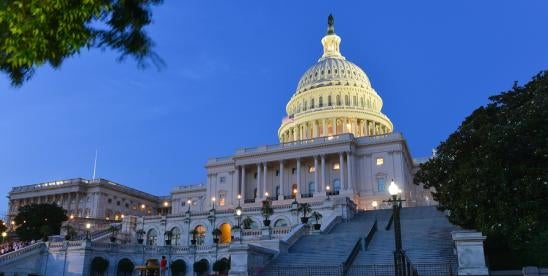The United States District Court for the District of Columbia has blocked several of the provisions of the National Labor Relations Board’s (NLRB) new election rule. Judge Ketanji Brown Jackson court held that those aspects of the new rule were not lawfully promulgated, because the NLRB did not follow the public notice and comment procedure required to be used by federal agencies when promulgating substantive, as opposed to, procedural rules. The rule was slated to go into effect on May 31, 2020. The court wrote:
The Court . . . finds that the challenged portions of the regulation at issue are not procedural rules that are exempted from the notice-and-comment rulemaking requirements of the APA, see 5 U.S.C. § 553(b)(3)(A), and because each of these specific provisions was promulgated without notice-and-comment rulemaking, each one must be held unlawful and set aside, . . .
The court’s decision followed a challenge to the rule filed by the AFL-CIO. The AFL-CIO argued that the NLRB violated the Administrative Procedures Act (“APA”) by publishing its rule without, among other things, following the APA’s notice and comment rulemaking process. (The APA’s process generally takes longer than the procedure used by the NLRB in finalizing its new election rule.) The NLRB has characterized the changes as merely “procedural,” and thus not subject to the more onerous rulemaking process.
At the 11th hour on May 30, the court granted the AFL-CIO summary judgment on its Complaint for Declaratory and Injunctive Relief. The court issued a brief Order which will be followed “soon” by a memorandum opinion. In the Order, the court remanded the matter to the NLRB for reconsideration “in light of this Court’s ruling.”
While the court’s interim order does not make entirely clear which sections of the new rule are affected, it appears these aspects are included:
-
Enabling expanded pre-election litigation and resolution of election issues before employees vote
-
Increasing the time to an election
-
Slightly adding to the time for an employer to serve a list of eligible voters upon a petitioner
-
Clarifying the categories of employees eligible to serve as election observers
-
Allowing impoundment of ballots where there is an appeal of election details pending
It is not known whether other parts of the new rule will go into effect as scheduled on May 31 or will be delayed. It also is not known whether the NLRB will appeal or will initiate the full rule-making process.




 />i
/>i

